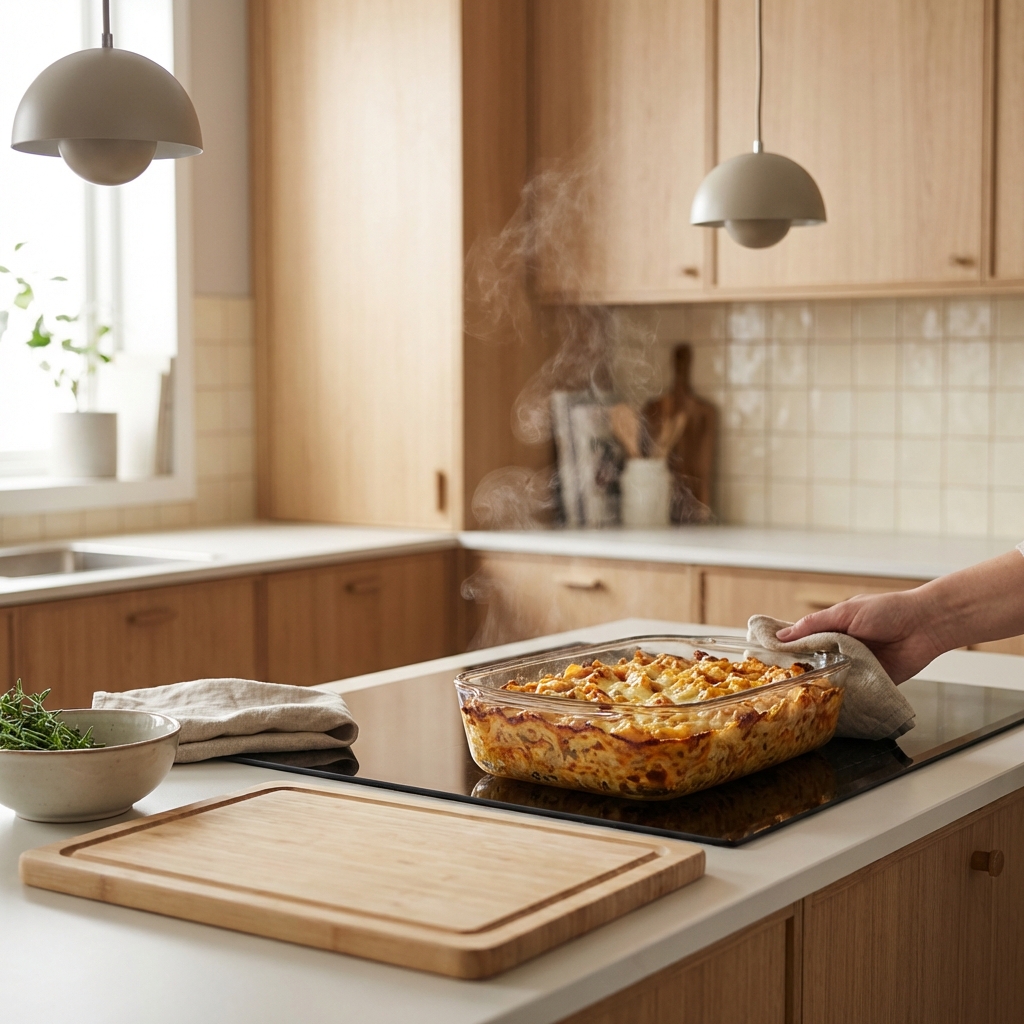Navigating Your Plate: Essential Food Safety Tips for Pregnancy

Is this safe to eat? 🥑
Scan any meal to instant pregnancy safety checks and nutrition insights.
Why Food Safety is Extra Important During Pregnancy
During pregnancy, your immune system is naturally suppressed, making you more susceptible to foodborne illnesses. These illnesses, like listeriosis or toxoplasmosis, can be more severe for you and potentially harmful to your developing baby.
Understanding food safety guidelines is crucial for minimizing these risks and ensuring a healthy pregnancy.
Key Foods to Avoid or Handle with Care
1. Certain Seafood
- High-Mercury Fish: Avoid shark, swordfish, king mackerel, and tilefish. Limit albacore (white) tuna to 6 ounces per week.
- Raw or Undercooked Fish/Shellfish: Avoid sushi made with raw fish, raw oysters, clams, and mussels. These can contain bacteria and parasites. Cooked sushi and fully cooked shellfish are generally safe.
2. Undercooked Meat, Poultry, and Eggs
- Meat & Poultry: Ensure all meat and poultry are cooked to the proper internal temperature. Avoid rare or medium-rare preparations.
- Eggs: Cook eggs until both the yolk and white are firm. Avoid foods containing raw or lightly cooked eggs, like homemade Caesar dressing, raw cookie dough, or hollandaise sauce (unless made with pasteurized eggs).
- Deli Meats & Hot Dogs: These can be contaminated with Listeria. If consumed, heat them until steaming hot (165°F or 74°C) just before eating.
3. Unpasteurized Dairy and Juices
- Milk & Cheese: Avoid raw (unpasteurized) milk and soft cheeses made from it (e.g., Brie, feta, Camembert, blue cheese, queso fresco) unless the label explicitly states they are made with pasteurized milk. Hard cheeses and processed cheeses are generally safe.
- Juices: Avoid unpasteurized juices often sold at farm stands or health food stores. Choose pasteurized options.
4. Raw Sprouts
Avoid raw sprouts of any kind (including alfalfa, clover, radish, and mung bean) as they can harbor harmful bacteria like E. coli and Salmonella.
5. Unwashed Produce
Thoroughly wash all raw fruits and vegetables under running water before eating, cutting, or cooking, even if you plan to peel them. This helps remove soil and potential contaminants like Toxoplasma.
Safe Food Handling Practices: The Four Steps
Follow these basic food safety steps consistently:
- Clean: Wash hands thoroughly with soap and water before and after handling food, especially raw meat, poultry, seafood, or eggs. Wash cutting boards, dishes, utensils, and countertops with hot, soapy water after preparing each food item.
- Separate: Keep raw meat, poultry, seafood, and eggs separate from ready-to-eat foods during shopping, storage, and preparation to prevent cross-contamination. Use separate cutting boards for raw meats and produce.
- Cook: Cook foods to safe internal temperatures. Use a food thermometer to check. (e.g., Poultry: 165°F, Ground Meats: 160°F, Beef/Pork Roasts/Chops: 145°F with 3-min rest). Reheat leftovers thoroughly to 165°F.
- Chill: Refrigerate perishable foods promptly. Never leave groceries or leftovers out at room temperature for more than 2 hours (or 1 hour if the temperature is above 90°F). Keep your refrigerator at 40°F or below.
Caffeine and Herbal Teas
- Caffeine: Moderate caffeine intake (generally considered up to 200 mg per day, about one 12-ounce cup of coffee) is usually considered safe. Discuss your intake with your healthcare provider.
- Herbal Teas: Some herbal teas may not be safe during pregnancy. Consult your healthcare provider before consuming herbal teas or supplements.
When in Doubt, Throw it Out
If you are unsure about the safety of a food item, it's best to err on the side of caution and avoid eating it. Using tools like the PregnancyPlate app can help identify potentially risky foods in real-time.
Remember to discuss any specific dietary concerns or questions with your doctor or a registered dietitian specializing in prenatal nutrition.
Want to track your meals and check food safety instantly? Try PregnancyPlate — trusted by 50,000+ expecting mothers.



